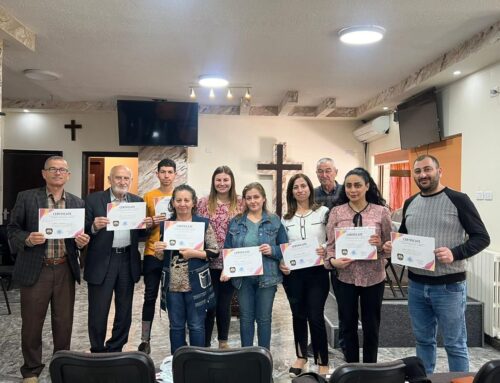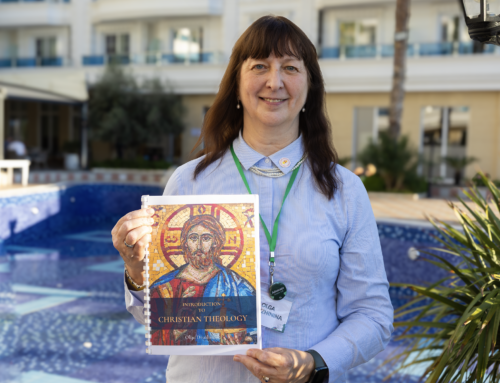 Education — and especially theological education — is a core value of the Church of the Nazarene denomination. It is why we have founded more than 50 institutions of higher learning around the world.
Education — and especially theological education — is a core value of the Church of the Nazarene denomination. It is why we have founded more than 50 institutions of higher learning around the world.
Yet, theological education is not limited to learning about God. It must include developing relational intimacy with God.
There can be two ways to approach knowledge about God: “objective knowledge” and “relational knowledge.” Depending on our goal, we may draw more heavily on one or the other.
In theological education, the challenge we face is that, since the Western culture puts such an emphasis on objective knowledge, we have to find ways to shift this focus toward relational knowledge.
When we are drawing on objective knowledge, we rely on the use of our reason and logic. Success is related to the degree of control of the object reached, and the accuracy of future predictions. This approach, which is at the root of hard sciences (like mathematics or physics), is vigorously promoted in Western education, sometimes even disparaging other approaches as ‘not objective.’ In such a setting, the expression ‘you are being subjective’ is a pejorative statement.
This approach is very valid for studying objects, but reaches many limits as soon as we consider living beings. And this includes God.
Relational knowledge is grounded not in reason but relationships. Here, success is measured by the peace and joy that the different persons or beings find in their interactions. In the domain of relational knowledge, if one person considers the other as an object, it significantly increases the risk of conflicts and problems. In relational knowledge, the goal is not to control the other, but to learn to love him or her and to interact harmoniously.
When asked what the most important commandment of God is, Jesus answered: “Love the Lord your God with all your heart, soul and strength. And the second is: love your neighbor as yourself.” It reminds us that the path of a disciple of Jesus leads to a focus on relational knowledge. Objective knowledge is necessary, only so long as it helps us to reach a better relational knowledge of God and our neighbor.
Already more than two decades ago, Nazarene theological education worldwide initiated a vital shift through the focus on Outcome-based education, highlighting not only Content but also Context, Competence, and Character (The 4 Cs). It is a good start, but we still have ways to go.
A successful minister of the Gospel is not first a person who masters areas of Christian knowledge (objective knowledge), but preferably one who loves God and her/his neighbor and knows how to help others to develop such a love — a disciple and disciple-maker.
One of the pathways to help us move from an objective to a relational knowledge of God is to give training in what we sometimes call “intimacy with God.” Here, we speak of prayer. The problem is that our understanding of prayer is sometimes so influenced by “objective knowledge” that we can quickly forget that prayer is not only about speaking to God but also learning to enter His presence and listen to Him.
The approach of “intimacy with God” covers the development of such a relational interaction with God. It involves two-way communication with God: speaking, listening and obeying. Intimacy with God has to be developed not only in times of private prayer or devotion, but as a way of life.
One aspect of such intimacy is a dialogical relationship with God. Henri Nouwen once wrote: “Although it is important and even indispensable for the spiritual life to set apart time for God and God alone, prayer can only become unceasing prayer when all our thoughts — beautiful or ugly, high or low, proud or shameful, sorrowful or joyful — can be thought and expressed in the presence of God. Thus, converting our unceasing thinking into unceasing prayer moves us from self-centered monologue to a God-centered dialogue… It is not hard to see how a real change takes place in our daily life when we find the courage to keep our thoughts to ourselves no longer but to speak them out, confess them, share them, bring them into the conversation.” (Spiritual Direction, chap 5: What is prayer?)
To move toward a relational knowledge of God, such “intimacy with God” will be crucial for the future of Christian theological education, and is at the heart of Scriptural holiness.
As the 4th-century theologian, Evagrius of Pontus wrote: “A theologian is one who prays.”
Written by Stéphane Tibi – Eurasia Region Education Coordinator
Previously published in the 2018 June edition of Where Worlds Meet.



